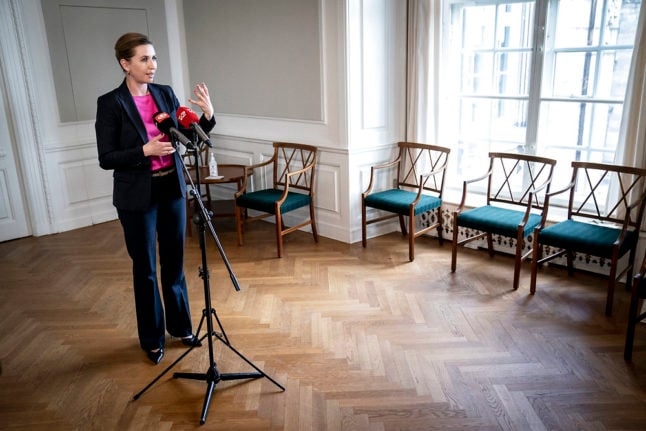The government will call for the private sector to propose ways in which vaccines could be produced in Denmark before a bidding round on a contract is eventually opened, news wire Ritzau reported after Frederiksen gave comments to a number of media.
“Based on the dialogue we have had with the science sector recently, our view is that there is a basis to establish production in Denmark on commercial terms,” she told financial newspaper Børsen.
Frederiksen has described the issue of Covid-19 vaccines as a “national security” issue.
She did not specify which company’s vaccine she envisaged seeing production in Denmark. In comments to broadcaster TV2, the PM said that the technology used must be of the mRNA type used in the Moderna and Pfizer vaccines.
Denmark earlier this month withdrew the AstraZeneca vaccine, which uses a different technology, from its national programme due to concerns over rare but serious side effects. The Nordic nation is the only country to have completely withdrawn the vaccine.
READ ALSO:
- Denmark announces funding for clinical trials of Covid-19 vaccine
- Denmark withdraws AstraZeneca from Covid-19 vaccination programme
The PM did also not put a figure on the state investment in the project.
But a bid for the contract would have to be approved by parliament, TV2 reports.
A target of domestic Covid-19 vaccine production in Denmark next year is optimistic, according to the Danish Association of the Pharmaceutical Industry (Lif).
“It is a sensible idea to test whether the market can deliver this if you believe (production) should happen here in Denmark,” the organisation’s business director Sofie Jensen told national broadcaster DR.
But the complexity of Covid-19 vaccine production meant such an arrangement could take some time, she added.
“From our side it is not realistic to be able to establish something like that as soon as 2022,” she added.



 Please whitelist us to continue reading.
Please whitelist us to continue reading.
Member comments